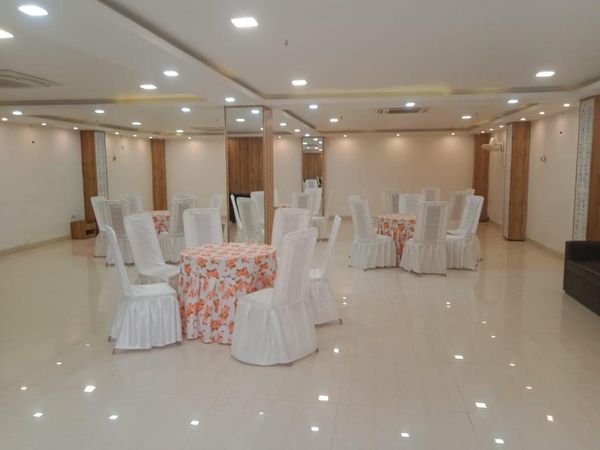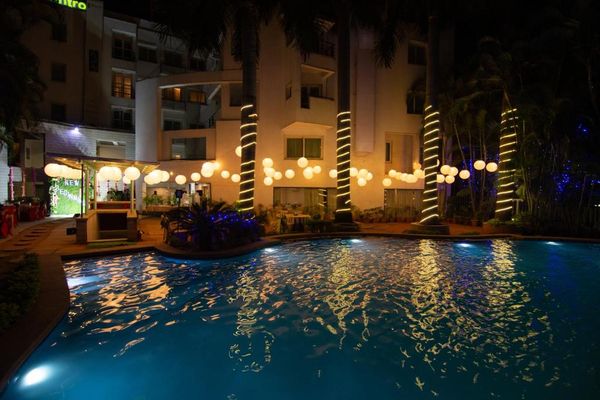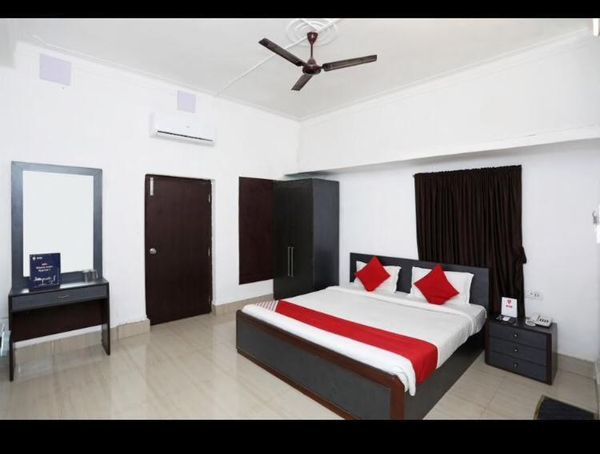Floor Protection Mats Where You Should Use Them
 Zain Ali
02 Oct, 2025
16 mins read
30
Zain Ali
02 Oct, 2025
16 mins read
30
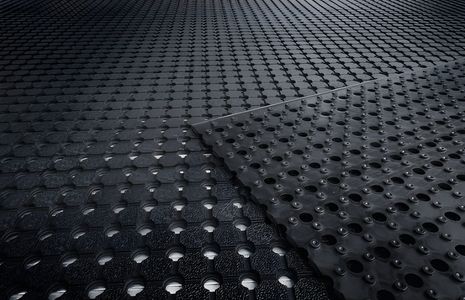
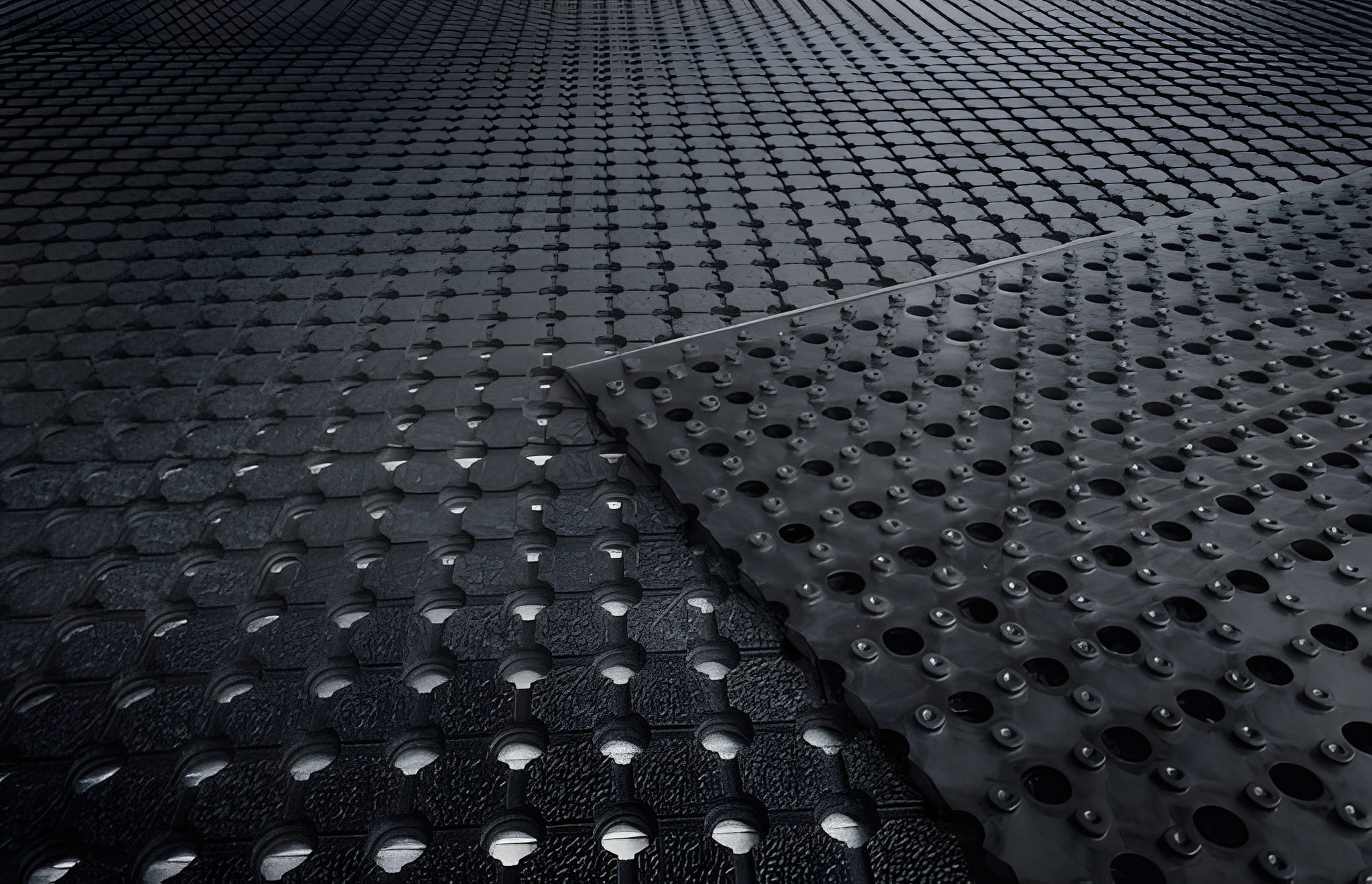
The rainy season arrived in Karachi. Zain walked into his house after fetching groceries, shoes soaked, and water dripping across the tiles. “If only we had something to stop the mess at the door,†his mother sighed. That night, Zain searched online for floor mats. But with endless options, confusion followed. “Where should I use these? Do they work everywhere?â€
This blog solves Zain’s puzzle—and maybe yours too.
We’ll explore where floor mats shine, and where they’re best avoided. You’ll learn how to make informed choices in each area—without wasting time or money. Let’s break it down, clearly and practically.
What Are Floor Protection Mats and Why Are They Used?
Floor protection mats are surface coverings designed to safeguard floors from dirt, moisture, scratches, dents, and heavy impact. They're often used in residential, commercial, and industrial environments.
Common materials include:
- Rubber
- PVC
- Foam
- Vinyl
- Polypropylene
Among these, rubber flooring mats are the most versatile, durable, and weather-resistant—especially in high-use or moisture-prone areas.
What Do Floor Mats Actually Protect Against?
- Mud, dust, and moisture from shoes
- Heavy furniture dents
- Rolling equipment scratches
- Gym equipment impact
- Slips and skids
Where Should You Use Rubber Floor Mats?
Here are the top areas where rubber floor mats make perfect sense:
1. Entryways and Doorposts
Why it works: These mats trap dust and water before it enters your space. Ideal for wet and muddy shoes.
Tip: Choose interlocking mats for doorsteps to allow drainage and easy cleaning.
2. Gyms and Workout Zones
Rubber flooring mats are almost essential here. They absorb shocks, reduce joint strain, and protect floors from weights and machines.
Best features to look for:
- High-density rubber
- Anti-slip texture
- Easy interlocking system
- Thick enough (12mm or more)
3. Kitchens and Laundries
Rubber mats resist water, oil, and stains—making them great for messy areas.
Look for:
- Mats with drainage holes
- Anti-fatigue rubber textures
- Durable under frequent use
4. Factories and Industrial Areas
Heavy machines, oil spills, and foot traffic—these spaces need strong mats. Rubber flooring handles heat, chemicals, and pressure better than most.
Choose:
- Rubber tiles with EPDM granules
- High-traction surfaces
- Easy to disassemble options
5. Commercial Bathrooms and Wash Areas
Water accumulation can be dangerous. A well-placed rubber mat offers safety, especially in high-use washrooms like malls or schools.
Avoid foam or cloth-based mats here—they trap water and smell.
6. Play Areas for Kids
Kids fall. A lot. Mats in play zones cushion their landings and keep them safe. Rubber mats also resist stains, crayons, and messes.
Use bright-colored rubber tiles for a playful vibe.
7. Offices with Rolling Chairs
Rubber floor mats under desks prevent wheel damage to tiles or hardwood. They also keep chairs from slipping.
Where Should You Not Use Floor Mats?
While rubber mats are useful, they aren’t ideal everywhere.
- Carpeted Rooms: Rubber on carpet creates friction and uneven surfaces. It may even damage the fibers underneath or trap moisture.
- Areas with Constant Sunlight: Direct sunlight can cause some rubber flooring mats to fade, crack, or become hard over time. Unless UV-resistant, avoid using them in sunrooms or open terraces.
- Bedrooms and Living Rooms (If Aesthetic Matters): Rubber mats often lack the warm and soft look people prefer for cozy living spaces. Instead, go for stylish rugs or wooden textures in these areas.
- Places Needing High Elegance or Décor: Luxury boutiques, hotel lobbies, or art galleries might require more visually elegant options like marble or wooden tiles.
In such cases, discreet floor protection pads under furniture may be better than visible mats.
Comparison Table: Where Floor Mats Work Best
1. Gym
- Recommended Mat Type: Rubber flooring mats
- Why It Works: Durable, shock-absorbing, and slip-resistant. Protects floors from weights and constant movement.
2. Kitchen
- Recommended Mat Type: Anti-fatigue rubber mats
- Why It Works: Softens the impact on joints and provides traction on slippery, wet surfaces.
3. Entryway
- Recommended Mat Type: Rubber entrance mats
- Why It Works: Traps dirt, sand, and moisture before it enters your living space.
4. Factory
- Recommended Mat Type: Interlocking rubber tiles
- Why It Works: Easy to clean and replace. Provides grip and comfort for workers on long shifts.
5. Outdoor Balcony
- Recommended Mat Type: UV-treated rubber mats
- Why It Works: Withstands sun exposure and rain, keeping surfaces safer without degrading too fast.
6. Carpeted Area
- Recommended Mat Type: None
- Why It Works: May cause friction and wear on carpet. Not suitable for this type of flooring.
7. Polished Hardwood
- Recommended Mat Type: Hardwood-safe rubber mats
- Why It Works: Standard mats may stain or trap moisture; choose options designed for wood compatibility.
“Quality is never an accident. It is always the result of intelligent effort.†– John Ruskin
How to Choose the Right Rubber Flooring Mat?
Ask yourself:
- Will the area get wet?
- Will people walk, stand, or exercise on it?
- Will heavy items be placed on it?
- Does the space need style or just function?
Once you answer these, you’ll know if you need interlock tiles, coin texture mats, or honeycomb rubber mats.
How Long Do Rubber Floor Mats Last?
High-quality rubber flooring mats can last 5–10 years depending on usage, exposure to weather, and maintenance.
• Pro tip: Rotate mats in high-traffic areas every few months for even wear.
What’s the Best Rubber Floor Mat Type for My Space?
Here's a quick guide:
- Coin Texture: For slippery kitchens and labs
- Interlock Mats: For large areas like factories or mosques
- Weaving Mats: For indoor-outdoor transitions
- Honeycomb Mats: For outdoor drainage areas
- Dot Texture: For doorsteps and homes
- EPDM Granule Tiles: For gym or industrial spaces
What is the Price of Rubber Floor Mats in Pakistan?
Prices vary based on material, size, thickness, and type.
Average ranges:
- Basic mats (doorstep): Rs. 500 – Rs. 1,200
- Interlocking gym mats: Rs. 1,500 – Rs. 3,500 per piece
- Coin/honeycomb mats: Rs. 2,000 – Rs. 4,000 per roll (depending on size)
For durable, smart-priced options, look for local manufacturers with direct-to-customer services.
Why Polycrafts Pvt. Ltd Is the Smart Choice for Floor Protection Mats in Pakistan?
Wondering where to find the most reliable rubber flooring solutions in Pakistan? Polycrafts Pvt. Ltd is your go-to brand for high-quality rubber floor mats, floor tiles, and interlocking systems. With years of industry expertise, they’ve become a trusted name offering floor protection mats that suit homes, gyms, factories, and schools across the country. Whether you need a basic entry mat or a heavy-duty industrial floor tile, their collection is designed to handle it all—without the hefty price tag. If you want peace of mind, comfort, and long-term value, explore Polycrafts’ rubber flooring solutions to match your exact space and need.
Final Thoughts—Where Do Floor Mats Belong (And Where They Don’t)?
Here’s the quick takeaway:
Rubber floor mats are ideal for gyms, entryways, factories, play areas, and high-traffic spaces—they handle pressure, moisture, and movement with ease.
Avoid using rubber mats in fine-finished living rooms, plush carpets, or areas with constant moisture buildup underneath—they need ventilation and stability.
Choose interlocking rubber floor tiles for flexibility—they can be added or removed anytime without damaging your floors.
- Pro Tip: Match your mat type with your purpose. Anti-fatigue mats for standing desks, honeycomb mats for wet zones, and rubber coin mats for garages or basements.
Quote to remember:
“Success is the sum of small efforts, repeated day in and day out.†– Robert Collier
And sometimes, those small efforts begin with something under your feet.
So before you roll out any mat, ask yourself: Is it protecting or harming the space beneath it?
Need a long-lasting, easy-to-maintain rubber flooring option?
Here's a solution worth considering:
Choose Polycrafts Pvt. Ltd for Rubber Flooring Solutions.
The same goes for maintaining your floors—use smart tools like the right mat, and you’re set for long-term protection.
FAQs
Q1. Can rubber floor mats be used on wooden floors?
Yes, but add a thin anti-slip liner underneath to prevent discoloration or marks on wood.
Q2. Are rubber flooring mats waterproof?
Absolutely. They’re among the best at resisting water, making them ideal for wet zones.
Q3. Do floor mats damage tiles or surfaces?
No—if placed properly, they protect tiles. But avoid leaving moisture-trapped mats for long durations.
Q4. How do I clean rubber flooring mats?
Just rinse with water, mop using mild detergent, and air dry. Avoid harsh chemicals.
Q5. Is it safe to use rubber mats outdoors in hot weather?
Yes, but choose UV-treated mats for areas with constant sunlight.
Be sure to check back for more exciting news on mytravaly!
Written By:
Zain Ali



Hotels at your convenience
Now choose your stay according to your preference. From finding a place for your dream destination or a mere weekend getaway to business accommodations or brief stay, we have got you covered. Explore hotels as per your mood.
